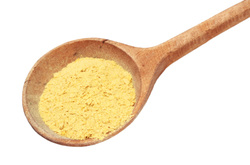 Jenelle Croatto APD After an influx of referrals last week for clients wanting advice on following a Candida Diet to prevent and/or treat thrush, I only thought it was appropriate to discuss the science surrounding this idea. The theory that by following a ‘yeast free’ diet will prevent excessive growth of candida was particularly popular during the 1980’s and was commonly recommended. However it gradually faded as a form of treatment in orthodox medical circles following a study which was released in 1990[1], and subsequent research into the area. One reason that the idea of a ‘yeast free’ diet gained traction is because some women with intolerances to natural food chemicals (most commonly, salicylates) will often experience vaginal irritation and mouth ulcers, sometimes with tongue coating. Based on clinical presentation only, many medical practitioners have come to the misdiagnoses of thrush. To properly diagnose thrush a swab needs to be conducted. If candida has been identified then it is treatable with an anti-fungal agent. However, if the result is negative then diet may be explored as a possible cause of symptoms. Another area of confusion surrounds that of allergy testing. Individuals who present with a positive skin prick test (SPT) to yeast/candida may be lead to think that they are allergic. In fact this is only indicative of exposure, which is universal, and not a clinical diagnosis of an allergy, or a valid reason to commence a ‘yeast free’ diet. At times the line between food and clinical symptoms can be quite blurred, and I can appreciate that it can be tricky to pin point what may be causing issues. For this reason, if anyone is suspecting that they may have some form of sensitivity to food I strongly encourage involvement with a medical practitioner and Dietitian who are experienced in the area of food sensitivities. Following a restrictive diet without the guidance of a Dietitian may lead to a diet that is nutritionally inadequate and inappropriate. [1] A RANDOMISED, DOUBLE-BLIND TRIAL OF NYSTATIN THERAPY FOR THE CANDIDIASIS HYPERSENTIVITY SYNDROME. N Engl J Med (1990); 323:1717-23
0 Comments
|
News FEEDFitness, Energy, Education & Diet Archives
June 2020
Categories
All
|
 RSS Feed
RSS Feed